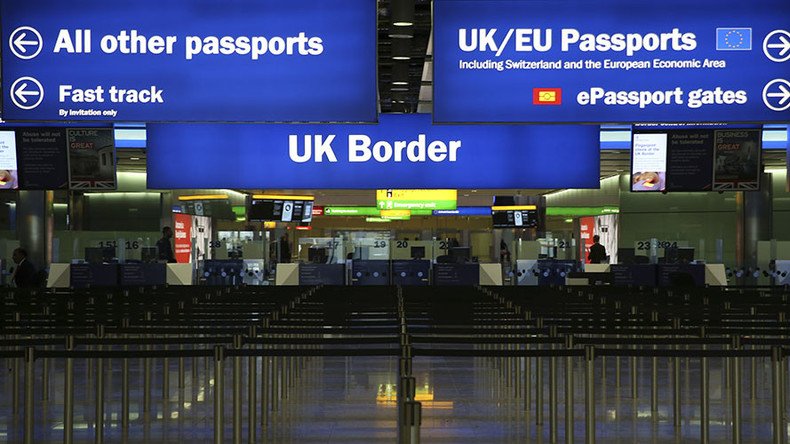Registering over 3mn EU nationals already living in UK would take 140yrs – study

It would take approximately 140 years to process permanent residency applications for the 3-million-plus EU citizens currently living in the UK if they were all to apply now, a new post-Brexit referendum report warns.
Oxford University’s Migration Observatory has stressed in its report, entitled ‘Here Today, Gone Tomorrow? The Status of EU Citizens Already Living in the UK’, that protecting the long-term status of EU migrants already in Britain will be a real challenge.
“Given the sheer number of EU citizens who would need to register and the potential complexity of the process, this will be a formidable task,” Director of the Observatory Madeleine Sumption said in a statement.
Researchers studied the existing process that the Europeans can use to apply for permanent residency in Britain to analyze potential problems the government may face if any new registration scheme was introduced following the Brexit vote.
“If all EEA [The European Economic Area] citizens already living in the UK in early 2016 applied for permanent residence at once, this would represent the equivalent of around 140 years’ worth of work at recent rates of processing for this type of application,” the study found.
Immigration lawyers found that there is “particular confusion” around the current permanent residency rules for students and the so-called self-sufficient people, such as retirees, who may be even unaware that they need to have comprehensive sickness insurance while in the UK, the report said.
“This is an area of law that has not received much attention so far, but it is about to become a lot more important,” Sumption noted. “Around a third of applications are either refused or deemed invalid because they do not include all the right paperwork. With a much larger number of people now in the pipeline, the complexity of the process is likely to come under scrutiny,” she said.
The UK is expected to introduce a host of new freedom of movement restrictions following the Brexit referendum in June to leave the bloc. The government has yet to outline the details of any comprehensive plan, however.
In a major concession from the EU, the UK could be exempted from free-movement rules while still retaining access to the single market. The “emergency brake” on immigration could be extended to seven years, the Guardian reported late last month. This latest concession, if put into force, would be unprecedented, although unnamed high-ranking UK officials told the paper it’s still in “very early days.”
Meanwhile, a group of MPs has warned that Britain may face a surge in migration ahead of the country’s withdrawal from the European Union unless the government mandates a “cut-off date.”
The Home Affairs Committee said uncertainty over Britain’s looming exit from the EU will trigger a last minute increase in EU citizens coming to the UK, exacerbating delays and backlogs in the immigration system.
“Past experience has shown that previous attempts to tighten immigration rules have led to a spike in immigration prior to the rules coming into force,” MPs said in the committee’s latest report.
"Moves to tighten immigration controls for non-UK citizens seeking to come to the UK, following the outcome of the EU Referendum, will have obvious implications for the work of the Immigration Directorates, whatever the final terms of the agreement with the EU are,” it noted, adding that the outcome of the EU referendum placed the Europeans living in the UK in a “potentially very difficult and uncertain position.”














